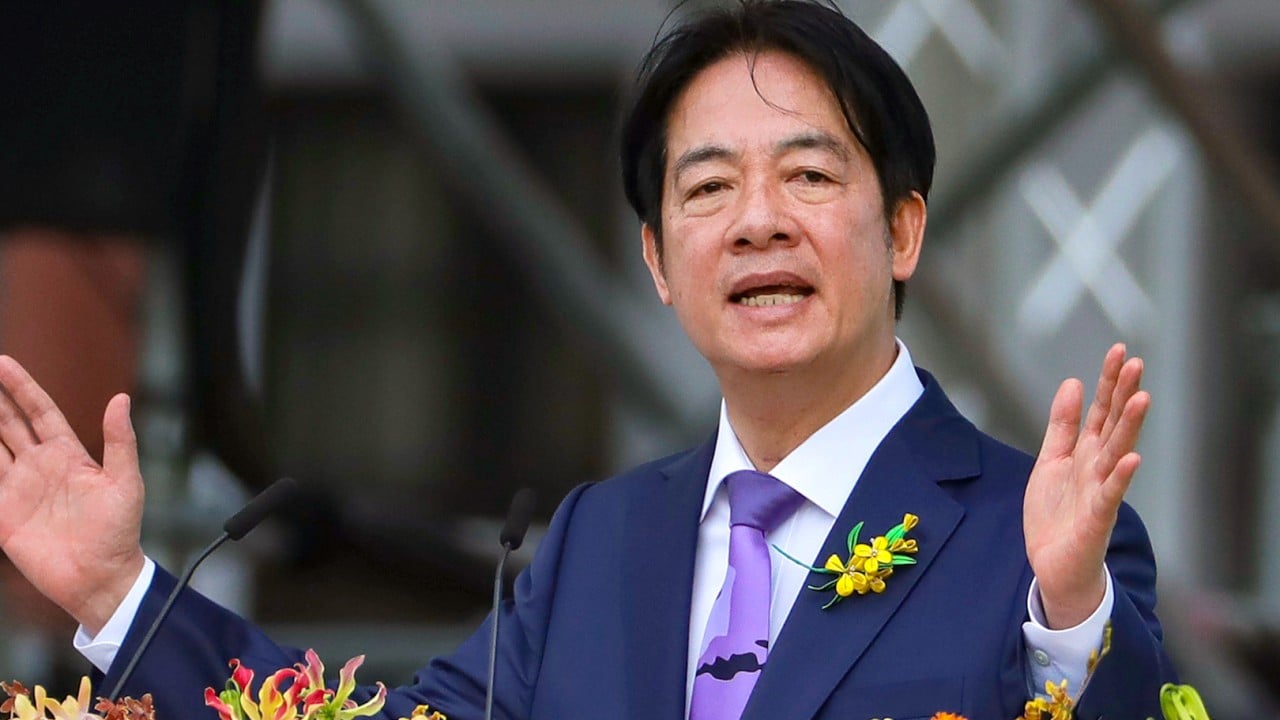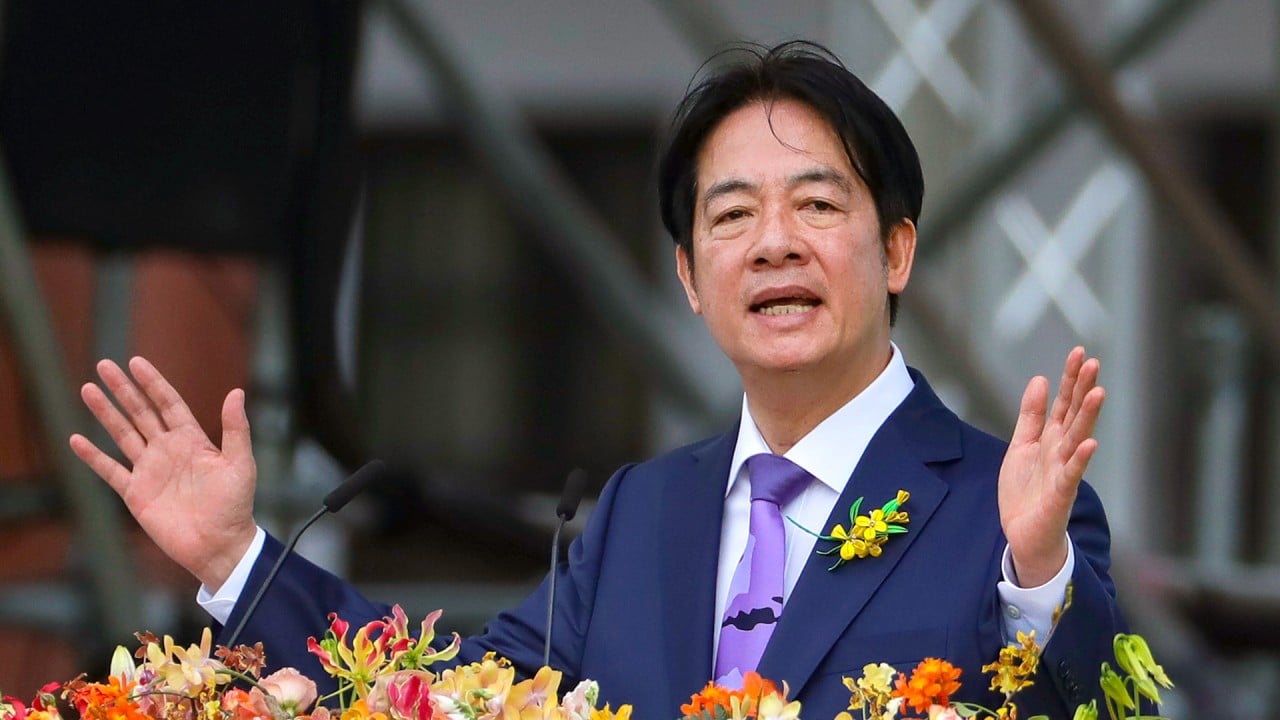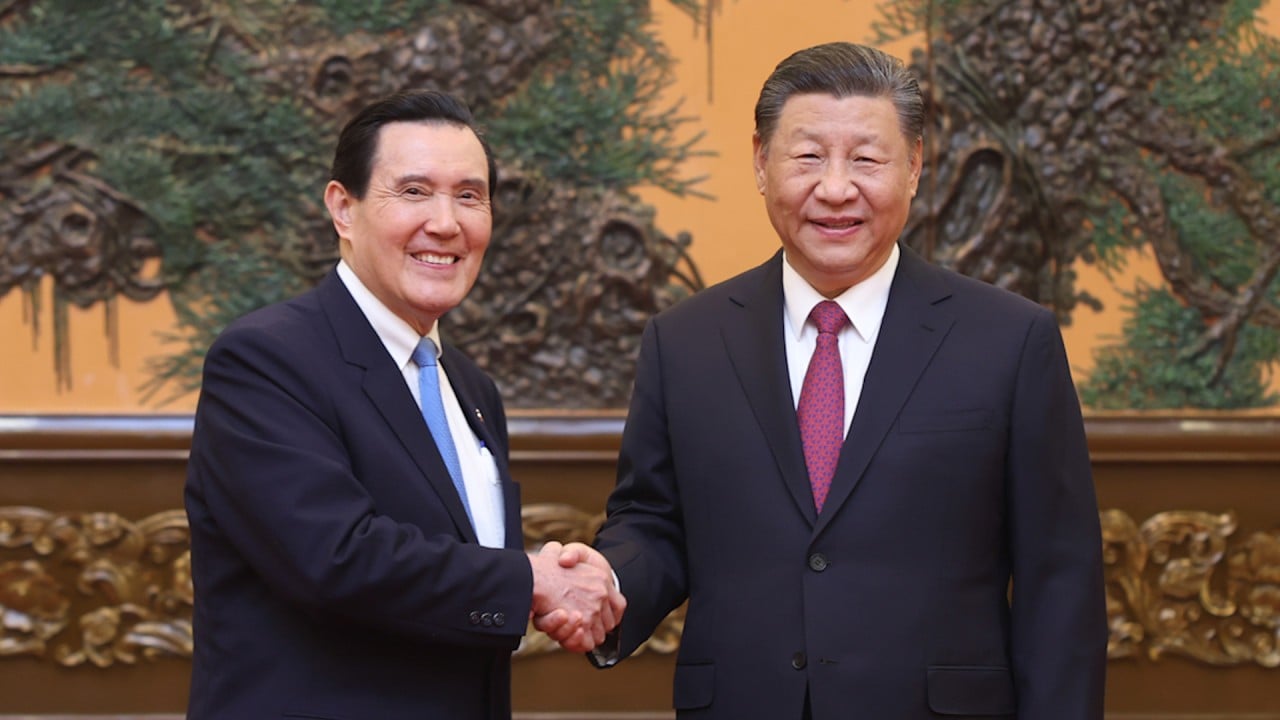“Taiwan independence” separatists could face the death penalty in extreme secession cases, according to a judicial guideline released by Beijing on Friday.
The guidance was effective immediately and released jointly by the Supreme People’s Court, the Supreme People’s Procuratorate, and the ministries of public security, state security, and justice.
It said that those who organised, planned or commanded separatist activities, or those who were directly involved in carrying out the activities, could be jailed for between 10 years to life.
Those cases deemed to have “severely endangered the state and the people” could warrant the death penalty, the document said.
Individuals who take part in multiple separatist activities, play major roles or aide leaders of such activities could be jailed for up to 10 years.
The guideline comes into effect one month after the inauguration of William Lai Ching-te as Taiwan’s new leader, a man Beijing has branded as an “obstinate separatist”.
Beijing sees Taiwan as part of China to be reunited by force if necessary. Most countries, including the United States, do not recognise Taiwan as an independent state, but Washington is opposed to any attempt to take the self-governed island by force and is committed to supplying it with weapons.
Chen Binhua, a spokesman for Beijing’s Taiwan Affairs Office, said it was “reasonable and lawful” to punish “Taiwan independence” separatists, whom he said “harm the interests of people in Taiwan” and were the “root cause” of the risk of conflict across the Taiwan Strait.
“Only by strictly punishing ‘Taiwan independence’ separatist crimes can Taiwan compatriots enjoy the benefits of peaceful development of cross-strait relations and live a peaceful and secure life,” Chen said.
He stressed that the guideline only targeted “a small handful of die-hard Taiwan separatists” and not the general public.
In response, Taiwan’s Mainland Affairs Council said Beijing had no judicial jurisdiction over Taiwan, and people on the island should “rest assured and not to be threatened or intimidated”.
“The actions of Beijing only serve to provoke hostility between the people on both sides of the Taiwan Strait, severely affecting exchanges and interactions, and do not contribute to the constructive development of cross-strait relations,” the council said.
The guideline laid down rules for the conviction and sentencing of offences determined as conducting or inciting secession, including allowing trial in absentia.
“It spells out clearly defined circumstances in which a very few diehard ‘Taiwan independence’ separatists, through acts such as organising, plotting or carrying out schemes of ‘de jure independence’, or seeking independence by relying on foreign support or by force, should be held criminally responsible,” mainland state news agency Xinhua said.
Harsher punishment could be meted out to those colluding in their crimes with overseas institutions, organisations or individuals.
It said courts, prosecutors, police, state security and judicial bodies on the mainland should “severely punish Taiwan independence diehards for splitting the country and inciting secession in accordance with the law, and resolutely defend national sovereignty, unity and territorial integrity”.
The new guideline also listed four offences that fall under the crime of secession.
These acts include initiating or establishing separatist groups, and directing members of those organisations or other individuals to carry out separatist activities or activities that “undermine national unity”.
The charge also covers people who “attempt to change the legal status of Taiwan as part of China” through legislative amendments, and those who promote Taiwan’s entry into international organisations, or engage in official exchanges with foreign bodies and military contacts.
Those in the fields of education, culture, history, and media who use their positions to “distort or falsify the fact that Taiwan is part of China”, or those who “suppress parties, organisations or individuals who support peaceful development of cross-strait relations and national unity” would also be held criminally responsible.
The guideline was in line with existing laws including Beijing’s 2005 Anti-Secession Law, the guidance said. The 2005 law provides a legal framework for Beijing to use non-peaceful means to guard against pro-independence forces in Taiwan.




